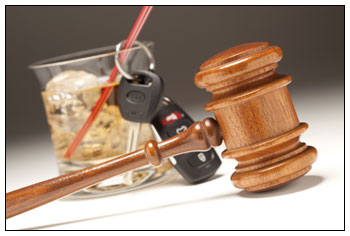OWI proposal raises court concerns
By: Jack Zemlicka, [email protected]//December 12, 2011//
A proposed expansion of ignition interlock devices to include all first-time offense drunken drivers has some legal professionals concerned by a potential loss of court discretion and increased litigation of low-level offenses.
Senate Bill 320, introduced Tuesday by Sen. Chris Larson, D-Milwaukee, would remove the .15 blood alcohol content threshold to order ignition interlock devices for first-time drunken drivers and mandate installation for all initial offenders at or above the minimum legal limit of .08.
The change would eliminate judges’ ability to differentiate first-time offenders who may not warrant interlock devices, said Milwaukee County Municipal Court Judge Derek Mosley.
“It would be problematic,” Mosley said. “Especially if you drive as part of your job. I don’t think there are too many Jimmy Johns who are going to want to install interlock devices in their cars.”
While judges are currently bound by the .15 level when ordering interlock devices for first-time offenders, the law doesn’t punish all first offenders in the same way, which Mosley said is a good thing.
But since first-time OWI offenses are civil forfeitures and not criminal offenses, Larson said the broad proposal is designed to provide an added layer of deterrence.
Beyond first offenses with a blood alcohol content over .15, judges are required to order ignition interlock devices if an offender refuses a breathalyzer test or if the driver injures or kills another person while driving drunk.
 Judges are required to order interlock devices in all second and subsequent offenses, which are criminal actions.
Judges are required to order interlock devices in all second and subsequent offenses, which are criminal actions.
“The best result for anybody who does drink and drive,” Larson said, “is to walk through the courtroom and have an ignition interlock device on their vehicle.”
The cost of installing and using interlock devices can run offenders $1,000 per year, Mosley said, compared to an average of $730 for just the first-offense forfeiture and court costs.
According to the current law, which would not change under the proposal, devices are installed for a minimum of one year.
In addition to the increased cost to offenders, Brookfield criminal defense attorney Jonathan LaVoy said the proposed law would lead to more low-level drunken driving cases going to trial. Offenders who drive company vehicles as part of their job will be forced, he said, to either plead guilty and face losing their job or fight the charge in court.
“The only way to avoid ignition interlock would be to beat the case and be found not guilty,” LaVoy said. “I think a lot of people are going to think they have nothing to lose and there is not going to be any disadvantage to litigating their case.”
An increase in trials would ultimately bog down the courts, Mosley said, because drunken driving trials often involve expert witnesses to testify on the validity of blood alcohol content at the time of arrest.
Currently, he said, most first-time offenses don’t drag out in court because offenders tend to pay their forfeiture.
“If the devices apply to everybody, that is a huge burden on the defendant,” Mosley said. “I think it would probably be more time consuming if someone is trying to argue they were not at .08 when they took the test.”
But Larson said the proposed law would level the playing field for first-time offenders and minimize any perception that they are getting off easy with only a civil citation.
“At the very least, I think this is going to move the line,” Larson said. “If each judge moves toward being stricter, I think the culture will change and that’s a good thing.”
Legal News
- Gov. Evers appoints David Casey to Serve as DOR Secretary
- FBI launches criminal investigation into Key Bridge collapse
- Man charged in slaying after woman’s leg found at Milwaukee-area park
- Minnesota man guilty in fatal stabbing of teen on Wisconsin river, jury finds
- Wisconsin teen sentenced in bonfire explosion that burned at least 17
- Wisconsin man who broke into home, ate victim’s chicken, slept in victim’s bed, receives prison and jail sentences
- Judge refuses to dismiss Hunter Biden’s gun case
- House passes reauthorization of key US surveillance program after days of upheaval over changes
- Milwaukee Police officer traveling to Georgia training retires before facing discipline
- Evers to ask legislature to approve largest increase in state support for UW System in two decades
- 7th Circuit Court of Appeals proposes new rules
- Federal agencies allege toxic work environment for women in new report
WLJ People
- Power 30 Personal Injury Attorneys – Russell Nicolet
- Power 30 Personal Injury Attorneys – Benjamin Nicolet
- Power 30 Personal Injury Attorneys – Dustin T. Woehl
- Power 30 Personal Injury Attorneys – Katherine Metzger
- Power 30 Personal Injury Attorneys – Joseph Ryan
- Power 30 Personal Injury Attorneys – James M. Ryan
- Power 30 Personal Injury Attorneys – Dana Wachs
- Power 30 Personal Injury Attorneys – Mark L. Thomsen
- Power 30 Personal Injury Attorneys – Matthew Lein
- Power 30 Personal Injury Attorneys – Jeffrey A. Pitman
- Power 30 Personal Injury Attorneys – William Pemberton
- Power 30 Personal Injury Attorneys – Howard S. Sicula











